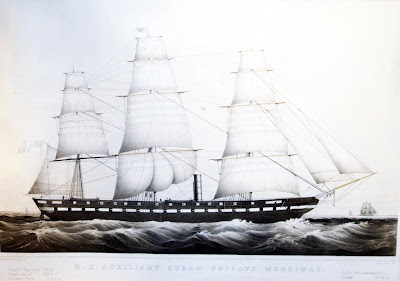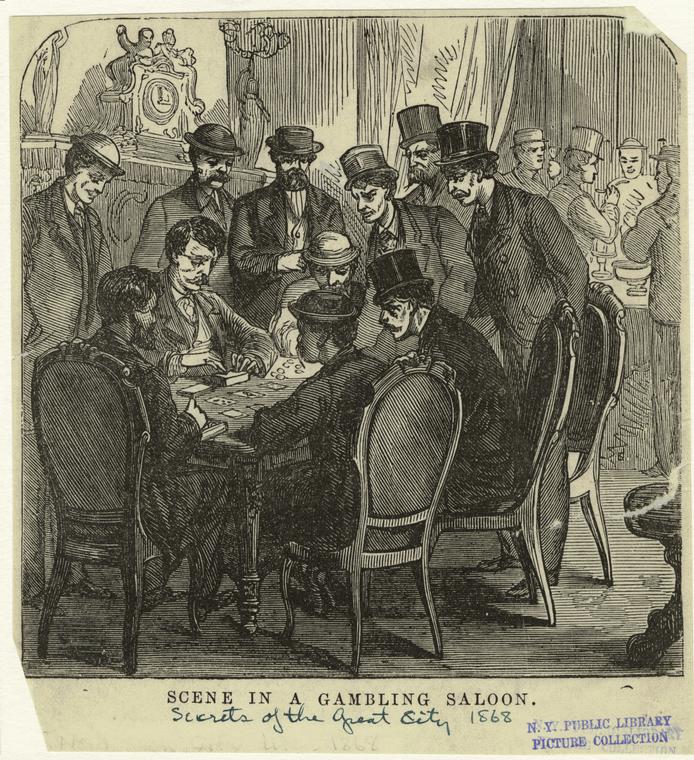Horatio Parker was born in Yarmouth, England. He spent seven years on a US Man of War and 26 years as a merchant sailor. Horatio Parker was last at sea, in 1859, aboard the Steam Frigate USS Merrimack. His previous residence was in New York, where he lived in B. House, possibly a Bethel House. With the money Horatio Parker made while with the USS Merrimack, he was able to open a Saloon on Pearl Street in New York. Horatio Parker would enter Sailors’ Snug Harbor on November 24, 1867, and reside at the Harbor for 22 years and 11 months, dying on October 30, 1882.

While aboard the USS Merrimack, Horatio Parker took part in the Pacific Squadron. The US Navy's Pacific Squadron was responsible for protecting the recently acquired California Coast Line, Oregon, and Washington and protecting American Pacific Commerce (Kinnaman, 152). On Saturday, October 17, 1857, the Merrimack left Boston Harbor and headed out to sea. The Merrimack made Rio de Janeiro by December 1, 1857. It eventually joined up with the USS Decatur, the USS St Marys, and the USS Massachusetts. Gold was soon discovered in California, and Gold Laden ships that had to pass through the Panama Route became a target for bandits and needed protection from the American Navy (Kinnaman,153). The USS Merrimack, along with the ships of the Pacific Squadron, cruised the Pacific coast of South and Central America, protecting US interests (Kinnaman, 175). The Merrimack proceeded to homeport on November 14, 1859 (Kinnaman, 265).

Horatio Parker's Saloon venture was probably a no-brainer in the mid-19th century. As an urban dispensary, the saloon replaced colonial taverns and corner grocers. In the mid-19th century, the saloon became popular when a switch occurred from distilled spirits to bear. It was estimated that half a city's population would visit a saloon in one day. The saloon, with its absence of a time limit and its freedom of self-expression and fellowship, allowed the saloon to become a natural social center (Kingsdale).
Opening a Saloon was also relatively cheap. Horatio Parker would have needed about 200.00 to start it. A brewer would then provide a location. The Brewer paid the rent, the license fee, supplied the beer, and the fixtures. The saloon–keeper agreed with the distributor to buy only his beer. The Saloon keeper then paid back the distributer by placing a tax on each beer barrel (Kingsdale)
Most of these early Saloons were not profitable to the Saloon Keeper. A lot of the money that Saloon Keepers made went to the distributor and the city. This, along with competition for clients from other saloons, caused many saloons to fail (Kingsdale)